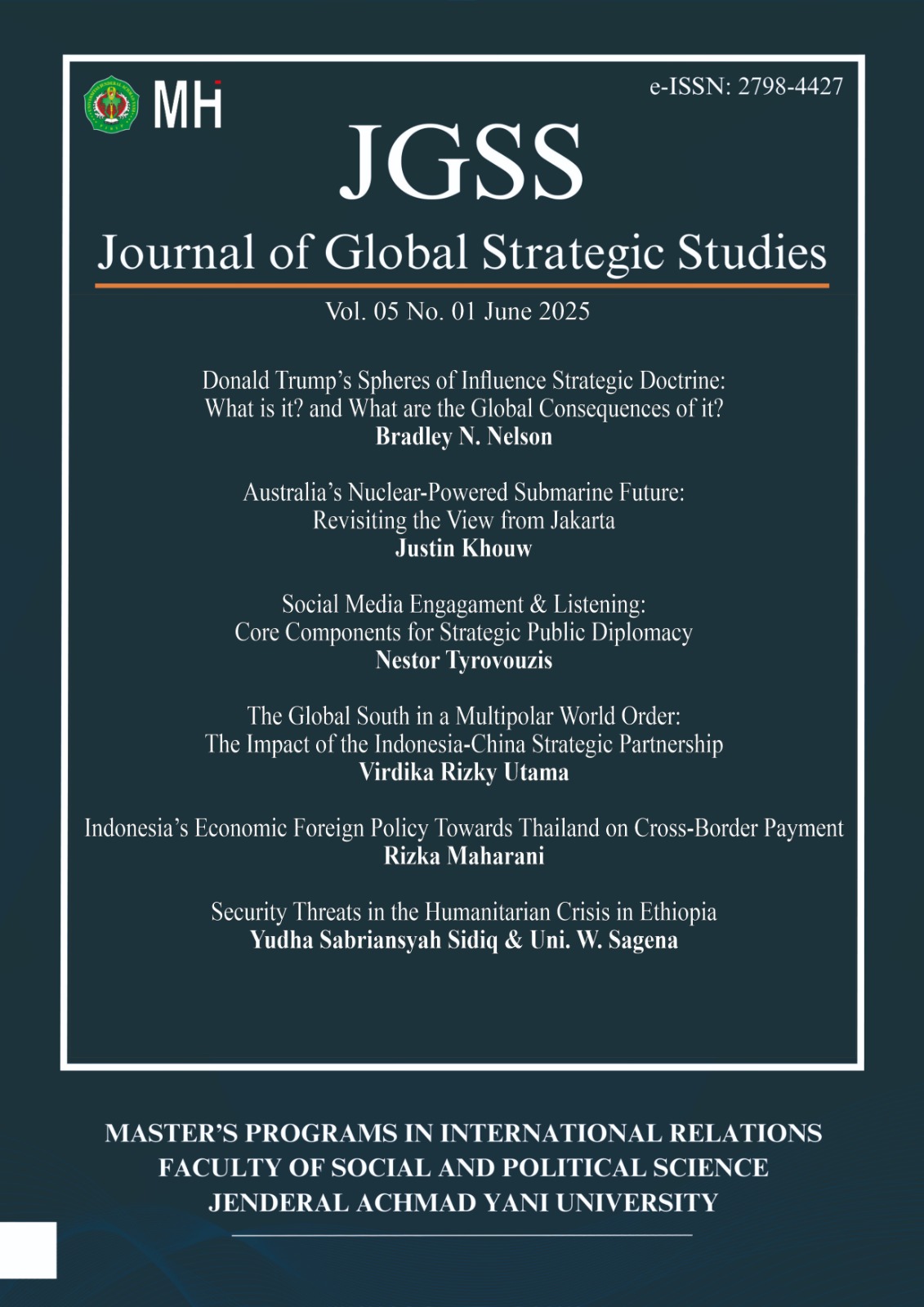Donald Trump’s Spheres of Influence Strategic Doctrine
What is it? And What Are the Global Consequences of it?
Abstract
The second Trump administration is disrupting both longstanding U.S. foreign policy and the foundations of the liberal world order. Under Trump 2.0, America has junked its strategic policy of global liberal hegemony in favor of a doctrine of spheres of influence. At bottom, Washington now pursues a coercive, rapacious, power-driven approach to the broader Western hemisphere, threatening and bullying neighbors and allies, while at the same time leaving Russia and China with the requisite space and freedom to do as they wish in their own geopolitical backyards. The dramatic transformation in U.S. foreign policy is rapidly ushering in a new global order that is grounded in a tripolar structure (U.S., Russia, and China) that privileges great power interests and aggression at the expense of the old rules, norms, and institutions of the post-WWII era. As the old order is weakened if not wiped clean away, the international system today lacks firm guardrails, and the security of the global weak is especially at risk. What can somewhat ameliorate this emerging problem is a non-aggression compact, or even a concert, among the three superpowers, as this could dampen the prospect of a hegemonic war and keep each out of the others’ sphere of influence.

Copyright (c) 2025 Journal Of Global Strategic Studies : Jurnal Magister Hubungan Internasional

This work is licensed under a Creative Commons Attribution-NonCommercial 4.0 International License.
Copyright Notice
The Authors submitting a manuscript do so on the understanding that if accepted for publication, copyright of the article shall be assigned to Journal of Global Strategic Studies, Department of Master of International Relations, Faculty of Social and Political Science, Universitas Jenderal Achmad Yani as publisher of the journal.
Copyright encompasses rights to reproduce and deliver the article in all form and media, including reprints, photographs, microfilms, and any other similar reproductions, as well as translations.
Journal of Global Strategic Studies, Department of Master of International Relations, Faculty of Social and Political Science, Universitas Jenderal Achmad Yani and the Editors make every effort to ensure that no wrong or misleading data, opinions or statements be published in the journal. In any way, the contents of the articles and advertisements published in Journal of Global Strategic Studies are the sole and exclusive responsibility of their respective authors
















